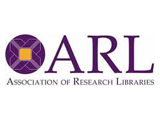
On March 3, 2014, the Library Copyright Alliance (LCA) submitted aresponse (PDF) to the European Union (EU) consultation on the review of copyright rules. The EU website provided a list of 80 questions for stakeholders to answer; the LCA response focuses on those questions most relevant to the library community. The categories of questions to which LCA responded cover digital transmissions, term of protection, limitations and exceptions, preservation and archiving, e-lending, mass digitization, teaching, research, and access for persons with disabilities.
LCA responds extensively to questions on limitations and exceptions, in particular advocating for fair use. LCA recommends that the EU adopt a flexible fair use provision in order to address areas where specific limitations and exceptions do not exist and to allow the copyright law to evolve as technologies change. With respect to fair use and limitations and exceptions, LCA cites several documents for the EU to consider, including a 2013 LCA white paper on How Flexibility Supports the Goals of Copyright Law: Fair Use and the US Library Experience (PDF), ARL’s Code of Best Practices in Fair Use for Academic and Research Libraries, Jonathan Band and Jonathan Gerafi’s The Fair Use/Fair Dealing Handbook, and Jonathan Band and Deborah Goldman’s Global Use and Fair Dealing Decisions Available Online.
In addition to broadly recommending adoption of a fair use provision in response to the EU’s general question regarding limitations and exceptions, the LCA notes in several other areas of the document that fair use can address specific issues concerning the library community. With respect to preservation and archiving, for example, the consultation response notes that while no specific limitation or exception exists in the US to permit web archiving, libraries and archives may rely on fair use to perform such functions. Similarly, the LCA response points out that libraries and archives may pursue mass digitization projects by relying on fair use. With regard to questions on the educational context, LCA notes that fair use can complement specific limitations and exceptions, including where specific limitations, such as those contained in the TEACH Act, are insufficient, too narrow or overly cumbersome.
Responding to other relevant questions, LCA recommends that the EU ratify the Marrakesh Treaty and ensure its implementation in all member states in order to improve accessibility for persons with disabilities. LCA also notes that current terms of protection for copyright are inappropriate, particularly in the digital age, and can contribute to loss of access to knowledge and an increased number of orphan works. Furthermore, the LCA response opposes any requirements that provision of a hyperlink or viewing of a webpage be subject to the authorization of the rightholder
This article originally appeared on the ARL Policy Notes blog on March 6, 2014.

























